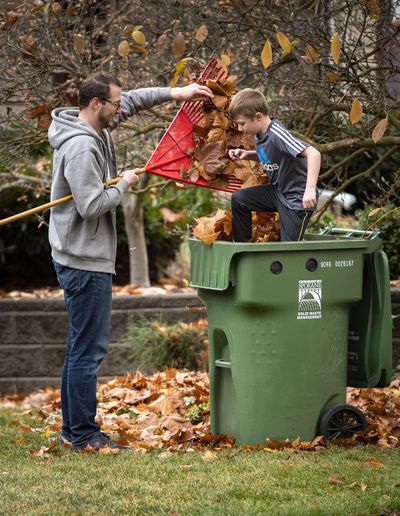Gardening: Mower can be integral in seasonal leaf removal

Happy Thanksgiving everyone. Today we will celebrate with family and friends around a table with more calories than we deserve. So how do we burn those off before they become permanently attached to our bodies? For those of you who haven’t gotten around to raking leaves yet, here is an easy way to get the job done with a minimum of effort and help your garden beds in the process.
Several years ago, after some health issues, I didn’t have the energy or the time to clean up every leaf and get them to the compost pile to make the place look perfect. Nature isn’t perfect so why should I be. Instead, I raked all the leaves and needles off the ground covers, perennials and shrubs to uncover them and then simply tucked all them around the plants to form a mulch. After all this is what nature does. The leaves accumulate on the ground and over time rot down to form a new layer of compost to feed the plants. As an added benefit, the mulch prevents weeds from growing in the spring.
Lawns are a little different. The grass will die out if a thick layer of leaves or needles are left over the winter. So, I rake the leaves out of the corners I can’t get the mower into and then run over the lawn with the mower with its side discharge port open. The leaves get nicely shredded and windrowed into rough piles that are easier to rake up. I got even lazier this fall because we finally sprung for a riding lawn mower. It’s twice as fast as the push mower and I get to do it sitting down! I run over the lawn with the side discharge open and then put the bagger back on and run over the lawn again to pick them all up. These are then used to mulch my vegetable garden boxes and the remaining flower beds. Along with protecting the beds from deep winter cold, the mulch will reduce the growth of the early weeds in the spring and that means even less work for me. The leaves deposited on the garden beds will break down over the summer and the bed will be ready for a new cover next fall.
There is always some shredded stuff left over though so I mix it with other garden debris and put it all into the compost pile. Again, I get lazy; I don’t turn my pile. I will continue to add stuff over the next few years and at some point, I’ll peel the outermost layer of undecomposed material off one end of the pile and use it to build the core of a new pile. I then dig the compost out of the old pile when I need it. The pine needles might still be recognizable but that isn’t a problem; they just add a little tilth to the soil which lets in more water and air. They don’t acidify the soil.